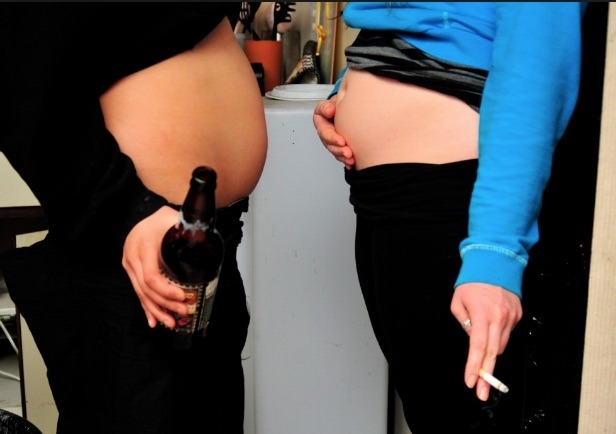
Even A Single Cigarette During Pregnancy Can Risk Your Baby’s Life
19 Apr 2019 | 2 min Read
Criselle Lobo
Author | 38 Articles
Smoking cigarettes is a terrible habit for anyone to have. It doesn’t matter what your age or gender is, but if you are addicted to puffing, multiple health problems are just waiting to happen. There is no good side to smoking and it is known to be the leading cause of lung cancer. In the United States of America, a maximum number of preventable deaths are due to smoking. Cigarettes have an adverse effect on the heart, lungs, and brain, and it’s very easy to get addicted to them.
Now a recent study has revealed that if a pregnant woman smokes even one cigarette during the nine months, it can put her baby at risk. It claims that the chances of a SUID (Sudden Unexpected Infant Death) are 22% higher if the expecting mom is unable to kick the butt. The researchers came to this conclusion after analyzing over 20 million pregnancies and 19,000 SUIDs. Basically, any amount of smoking increases the risk of the newborn’s death and the percentage went higher with each cigarette. But basically, it doesn’t matter if the mom-to-be takes a few drags, as even that can prove to be fatal.
A pregnant woman is anyway told to stay off alcohol and cigarettes but some of them are known to sneak in a glass of wine or a few puffs now and then. While the repercussions may not have seemed so dangerous, post this study, an expecting mom needs to ensure that she doesn’t smoke a single cigarette until her child is born.
Besides that, during pregnancy, a woman should maintain a balanced diet by eating a mix of slow-digesting carbs, lean protein, and healthy fats. She must also stay active by performing simple exercises or yoga.
A


Suggestions offered by doctors on BabyChakra are of advisory nature i.e., for educational and informational purposes only. Content posted on, created for, or compiled by BabyChakra is not intended or designed to replace your doctor's independent judgment about any symptom, condition, or the appropriateness or risks of a procedure or treatment for a given person.
